Foundation for Rural & Regional Renewal (FRRR)
Following the February 2022 floods and the devastation experienced by community members within and surrounding Kin Kin, in southern Queensland, the Kin Kin Community Group (KKCG) shifted its focus towards future planning and the inevitable impacts of another natural disaster on their community. They aim to be better prepared with improved emergency systems to enable their people to operate more efficiently and effectively.
Kin Kin is a secluded southern Queensland hinterland community situated in the Noosa Council area, near its boundary with the Gympie Council. The town has very limited essential services, with only a single general store and café. The February 2022 floods took the town by surprise and left the community fending for themselves. There was no community-friendly meeting place or emergency response centre and the community was cut off by floodwaters for days. No one could enter or leave except by a helicopter from the oval. Food supplies depleted rapidly and communication was hampered, leaving the community in the dark about the ongoing situation. For four days there was limited telecommunication, making the community members feel even more isolated.
KKCG is dedicated to representing and promoting the Kin Kin community, and it was to this organisation that the community turned during their time of distress. The Group operates on behalf of the community, seeking opportunities, positive change and growth for its people. The volunteers are doing all that they can to ensure the community is prepared and supported for the future.
The effects of the 2022 flood events underscored the need for an Emergency Response hub, a place where volunteers and community can gather, to connect, communicate and plan together. The situation also highlighted the scarcity of resources available to support volunteers, including drinking water and first aid equipment. It emphasised the community’s risk areas and disadvantages, illustrating the need for better preparedness in the future.
Fortunately, the KKCG received a grant of $25,000 from the Rebuilding Futures program, funded by the Suncorp Group. This enabled the KKCG to purchase equipment and carry out activities to enhance the community’s safety, connection, resilience and wellbeing. This includes establishing a community hub that is publicly accessible at all times, including during natural disasters, and serves to provide comfort, connection, safety and distribution of essential resources within the community.
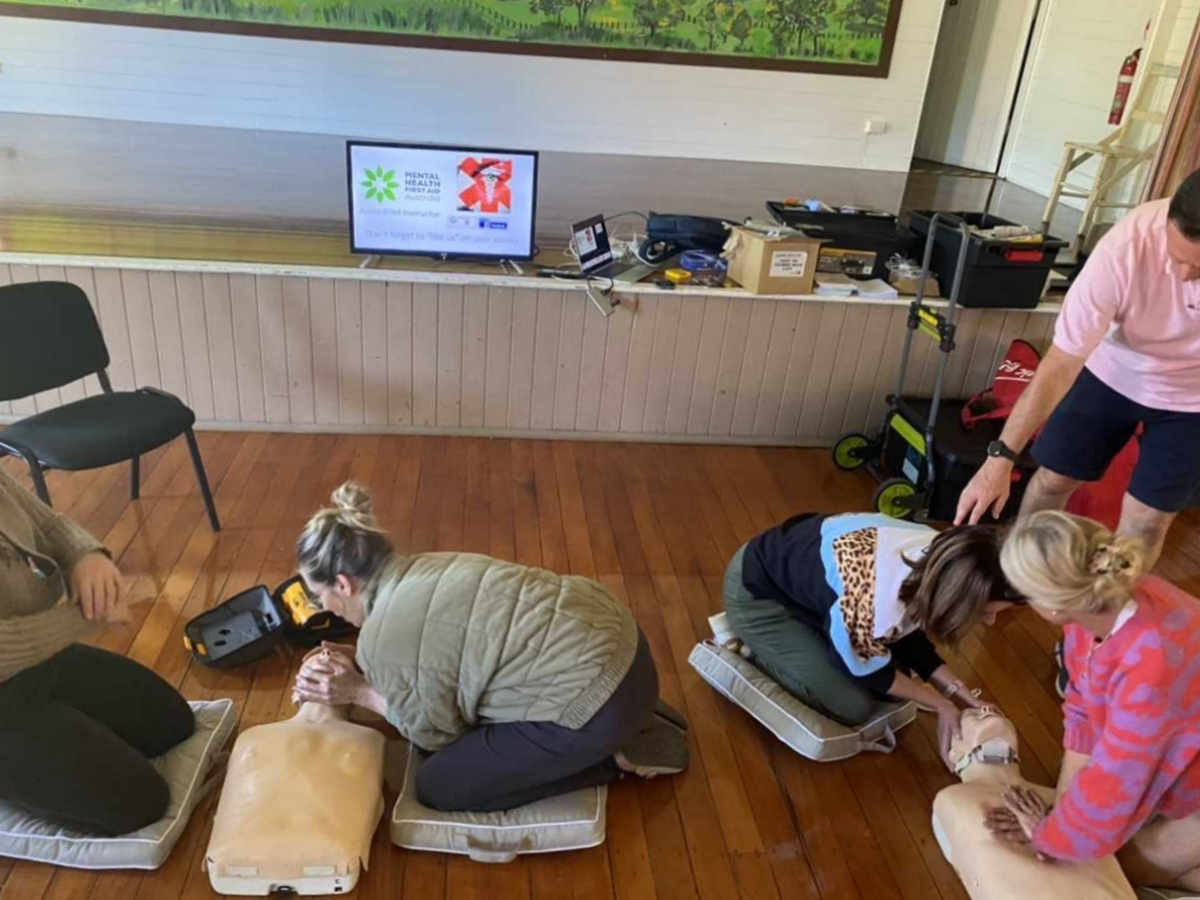
Specifically, the funds went toward essential office equipment such as computers, phones, an air conditioner, a printer, WiFi, first aid kit, a defibrillator, an emergency water supply and a community noticeboard. These resources aid in improving communication and growth within the community. The notice board displays disaster information and preparedness material from the Council and the Queensland Government, designed to better inform the community about disaster preparedness strategies. Furniture was also purchased, to make the space usable for community workshops and events that foster wellbeing and community connection. A recent example of such an event was a free first aid training day hosted by the KKCG. This workshop equipped volunteers with the skills to use the new first aid equipment and defibrillator in case of an emergency.
To combat volunteer fatigue and acknowledge the efforts of the Kin Kin volunteers, a ‘Volunteer Care Program’ was established. This program involves a monthly wellbeing initiative, allowing volunteers and community members to come together and connect. It bolsters the resilience and spirit of the community, fostering a sense of belonging and readiness to support others in times of need. The Community Hub is now equipped to meet the needs of the community in times of distress, with essential community resources and communication strategies focussed on supporting the overall health and wellbeing of the community. The hub, and volunteers who dedicate their time there, ensure that the local people, environment, culture and celebrations are embraced, fostering goodwill and prosperity. Indeed, it is the people and volunteers who have made Kin Kin an even more appealing and positive place to live.
Nestled beside the Rocky River and amid the undulating hills of the Southern Flinders Ranges in South Australia, Laura is a lively, artistic rural community with around 720 residents. The Laura Fair, inaugurated in 1980 to foster art and culture in the region, has been held without interruption until the COVID years.
The Fair is a major highlight for the region and normally taking place over two days at the beginning of April, typically attracting 10,000 to 15,000 patrons. The event is entirely driven by a small volunteer committee and a large contingent of casual volunteers who assist with various aspects of the event.
The event significantly benefits local businesses economically and serves as a primary fundraising platform for numerous local community groups. This family-oriented fair offers a delightful rural experience with great food and coffee, artisan market stalls, entertainment and more throughout the weekend.
To decrease the event costs of hiring equipment, including chairs, the fair committee was supported through a $4,590 Rebuilding Regional Communities grant to buy 200 stackable outdoor chairs for use at the fair and other community events, beginning with the 2024 Fair, which aimed to foster community connections post-pandemic and reinvigorate the event.
The Fair took place 13-14 April and attendees enjoyed a Street Parade, vintage cars, SES, CFS and local business floats and live entertainment, as well as roving performers and buskers, Sideshow Alley, food stalls, an Art Gallery exhibition and more than100 market stalls.
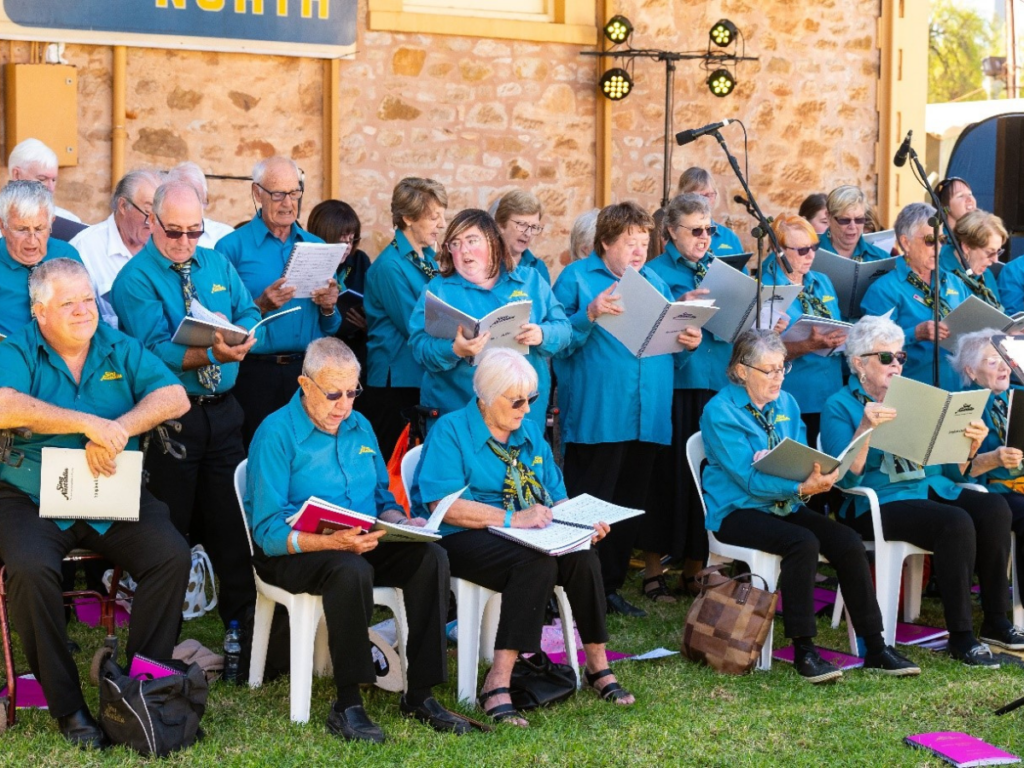
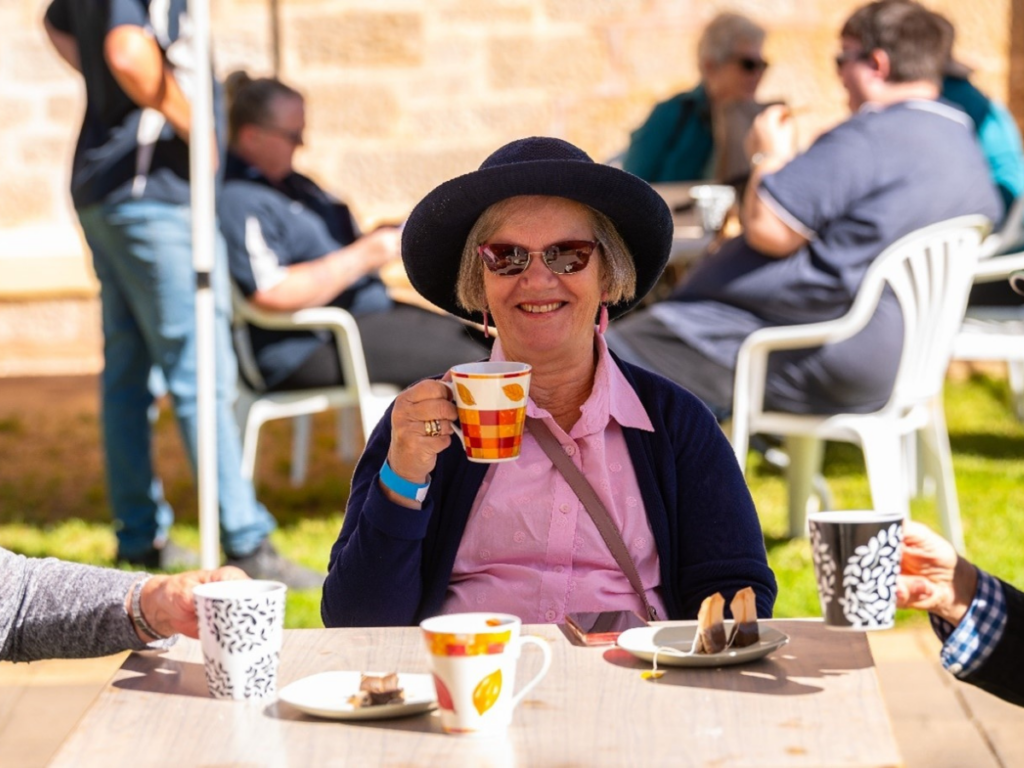
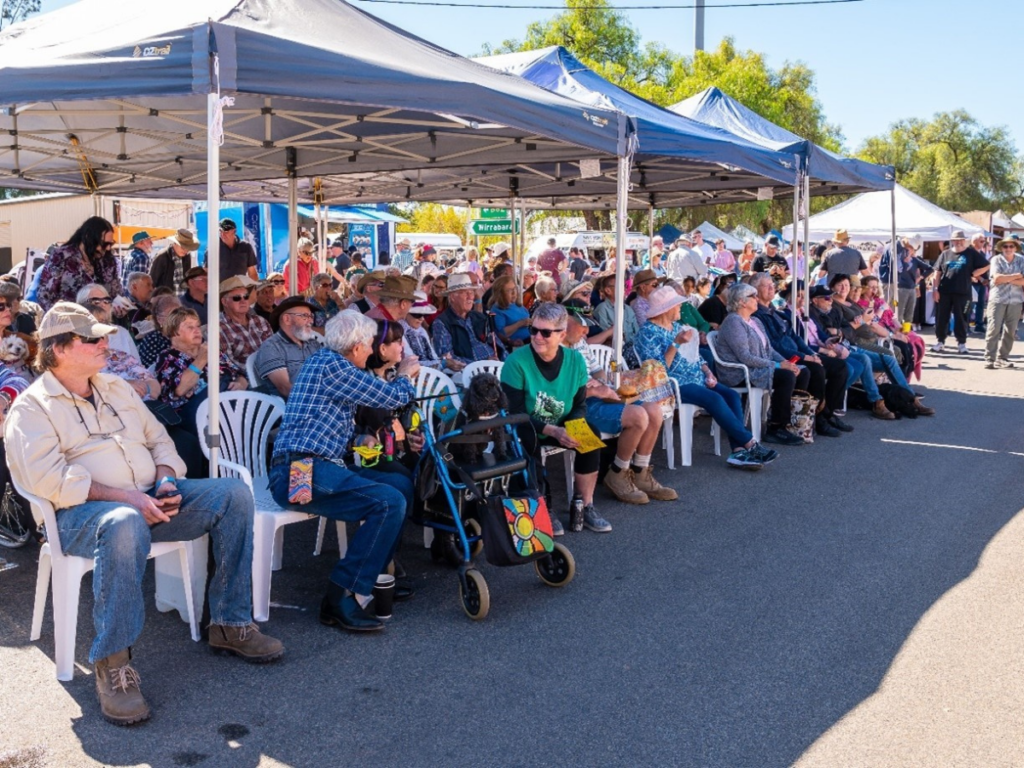
Events such as the Laura Fair are allowing regional, rural, and remote communities to heal and reconnect after the uncertainty and disconnection caused by COVID impacts and are vital to the social and mental recovery of residents.
The chairs purchased with the funds provided by the RRC program will mainly serve the Laura Fair during their yearly event, eliminating the recurring cost of renting them, as the group estimates the money they have spent over the years would have paid for chairs several times over.
The group has storage space in an existing facility to keep and maintain the seats in good condition. With COVID affecting revenue, this cost-saving measure will allow the group to allocate more funds towards running costs or supporting other local community groups. Additionally, these chairs will be available to other community organisations in the Laura area to eliminate the need for them to pay equipment hire.
Grant awarded to Kinglake Ranges Neighbourhood House Inc
FRRR has awarded an out-of-session grant for $30,000 to the Kinglake Ranges Neighbourhood House Inc, via the Grants for Resilience & Wellness – Kinglake Ranges program, funded by the Victorian Bushfire Appeal Fund (VBAF).
The project, titled “Co-designing our Future: Community Conversations – Kinglake Ranges Talks”, continues the ongoing support for the Kinglake Ranges communities in their long-term recovery and rebuilding following the Black Saturday bushfires that devastated the region in 2009. Specifically, the grant aims to strengthen the community’s ability to identify opportunities and priorities for the Kinglake Ranges through place based community-led consultation.
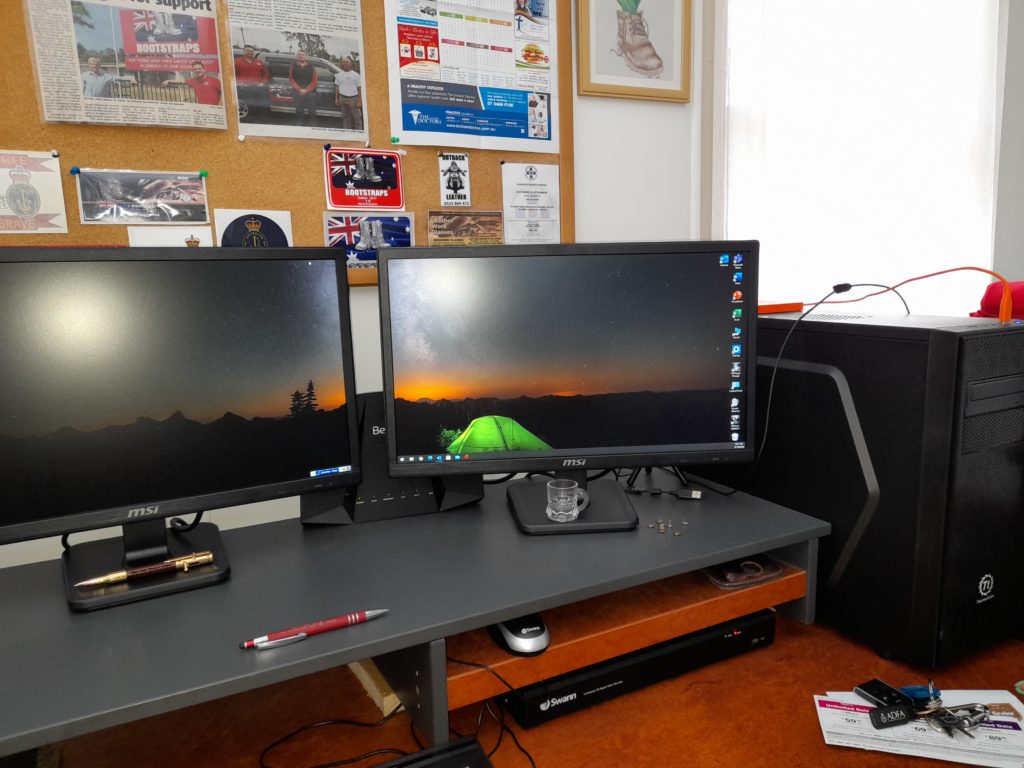
An innovative program drawing on the personal experience of its founder’s family is making an impact on veterans and current service personnel in Queensland’s Lockyer Valley.
Bootstraps is a volunteer-operated charity that runs a drop-in recovery centre for former service personnel who may be having difficulties connecting with family or society at large. Given the proximity of the RAAF Base at Amberley, Army Aviation at Oakey and Signals Regiment at Cabarlah, and with RSL Sub-Branches dotted through the Lockyer Valley, the organisation is well-located to offer this support.
President and founder of Bootstraps, Sam Kavanagh, was taught leatherworking by his father, who was in the air force and practised this craft as a kind of therapy. Building on this, as part of its offering, Bootstraps runs a leatherworking program to facilitate reconnection and social interaction. Ex-service personnel, current serving personnel and their families take priority, but space allowing, the program is open is open to anyone in the community.
The organisation needed some equipment to deliver the program and applied to FRRR for funding for an industrial leather sewing machine and a new computer, which they received in the form of a $5,407 Strengthening Rural Communities grant, funded by The Sylvia & Charles Viertel Charitable Foundation.
The computer replaced a small inefficient laptop and enhances the organisation’s day-to-day communications and planning, while the sewing machine supports every level of the Bootstraps leatherwork training program. The model chosen is capable of being hand-cranked, which facilitates use by veterans with lower limb disabilities in particular, and those confined to a wheelchair.
The grant application noted, “There are not many (if any) families in the Lockyer Valley that do not have a military and/or a horse connection that could benefit from the leatherwork activities run by Bootstraps.”
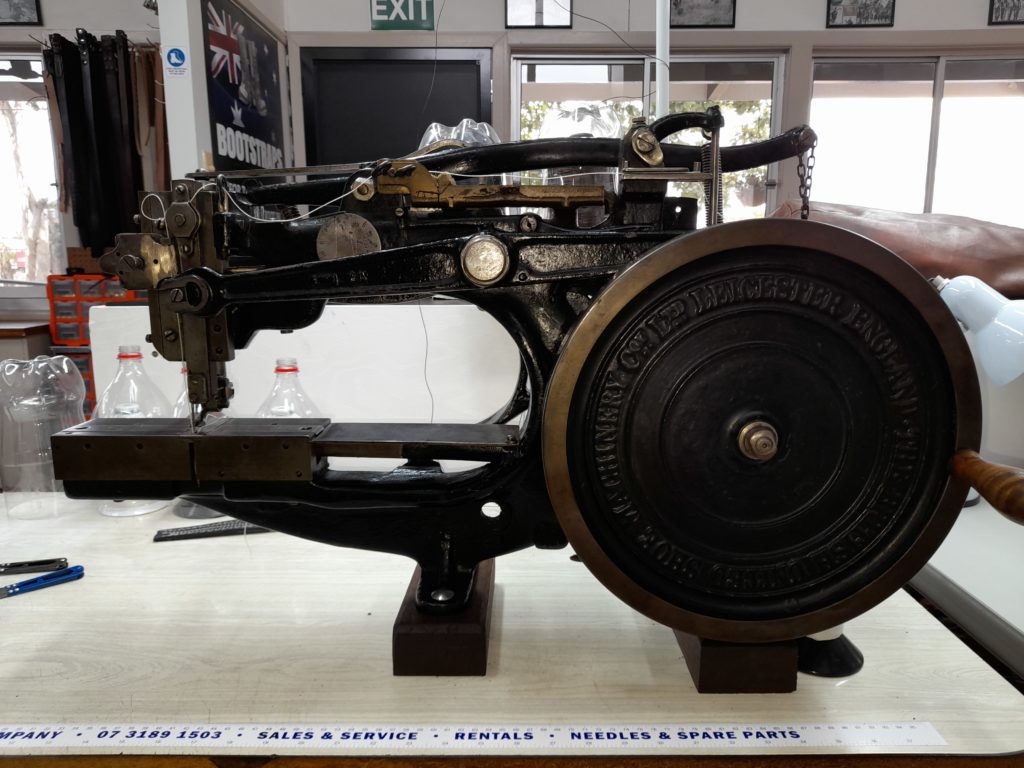
At the time of reporting, Bootstraps noted that more than 250 patrons have used the Bootstraps facilities, including the new leather sewing machine. The new IT facilities have meant better access and clearer information is available to the public about the program, via a more responsive and efficient website and communications.
These important pieces of equipment will help the program’s participants further their craft, while enabling social connection and helping veterans and the general community remain in a good head-space.

